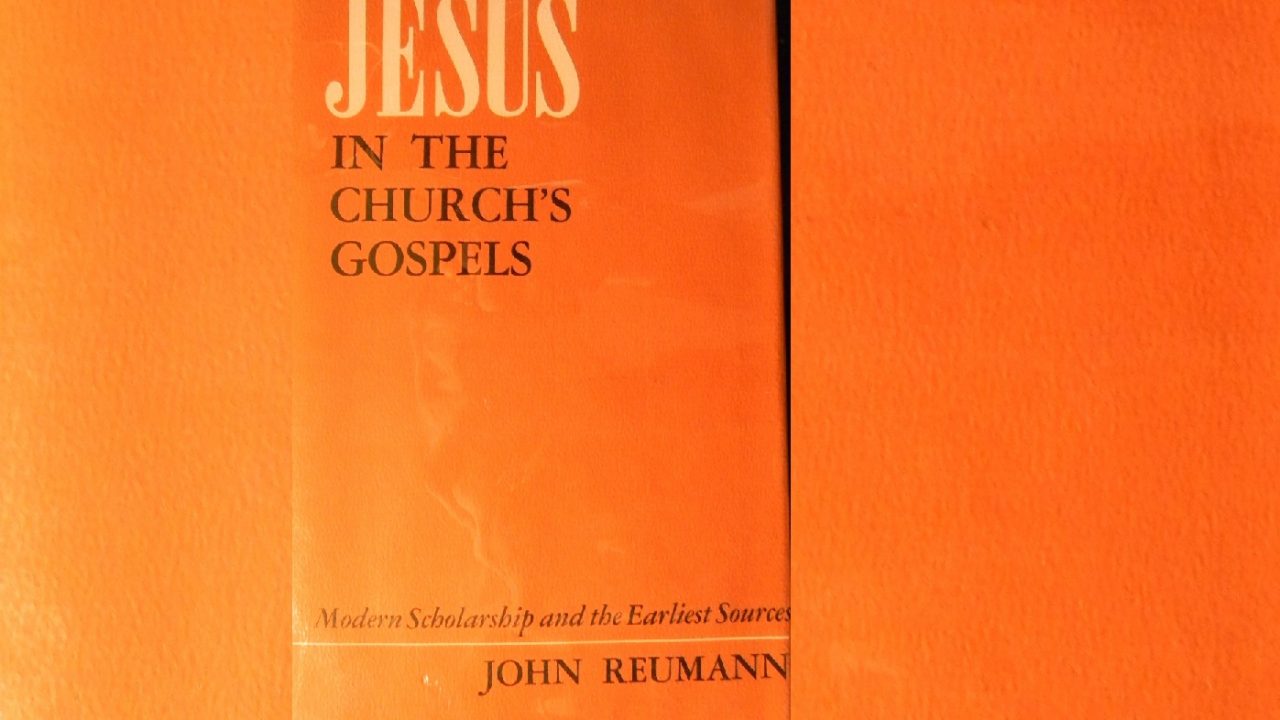From Jesus in the Church’s Gospels: Modern Scholarship and the Earliest Sources By John Reumann · 1968
Ask any hundred New Testament scholars around the world, Protestant, Catholic, or non-Christian, what the central message of Jesus of Nazareth was, and the vast majority of them—perhaps every single expert—would agree that his message centered in the kingdom of God. Such unanimity of opinion may seem rare among biblical experts nowadays, when so many conflicting ideas are voiced about most issues. Yet such is the case. The ancient sources in the gospels, especially the Synoptics, give such an answer.” The modern investigators agree. The “good news” which Jesus announced had to do with God and his kingdom.
An early Christian in Corinth or Rome in the fifties or seventies of the first century would have agreed. He was familiar with the term “good news” or Gospel and knew from the Jesus-material (and from any written gospels which might have been available to him by then) that the great theme which his lord had proclaimed during the ministry on earth was the kingdom of God. True, by now the term was not used as frequently as Jesus had employed it. For Roman police officials and spies would be suspicious of a term like “kingdom”-it might mask a threat to Caesar’s empire—and Jewish and pagan informers were all too quick to denounce Christians to the authorities. Hence the kingdom about which Jesus spoke had come to be expressed in a host of other terms and themes which made more sense to people who did not know Semitic backgrounds and the Old Testament roots for the biblical idea of “God’s kingdom.” Paul, in his letters, employed terms like “righteousness” and “peace” and “joy” to show what the kingdom meant (Romans 14:17). Indeed, the earliest apostolic preaching could set forth its message without any reference to the kingdom of God. But at the least early Christians would have recognized the term as the special theme of Jesus. 3
But today when we hear about Jesus’ message of the kingdom of God, it sounds strange to our ears and prompts a multitude of questions. This is not surprising, for we are twenty centuries removed from a message that already had a strange ring and had to be translated into new terminology soon after the resurrection, that is, in the earliest decades of Christianity. Further, we usually lack the knowledge of Old Testament and Semitic ways of thought, which for the Greek-speaking Christians too were strange already in the first century. We find it hard to pierce through to the meaning of the parables, which Jesus especially used in speaking about the kingdom.
The Gospel of Jesus about the Kingdom of God
There is a tremendous danger for modern men that Jesus’ teachings and message, as they are heard read in little snatches in church on Sundays or are scanned piecemeal by individuals, will seem isolated from each other and atomistic. An item here, a ray of light there, a truth somewhere else, but seldom anything to integrate all of Jesus’ teachings into a whole that makes sense as a totality and can be analyzed in its parts on some consistent basis. That is why it is so important to see that Jesus had a central message, and that it was about God’s kingdom. For it is this theme of the kingdom which integrates all of Jesus’ words and deeds.
That claim is a fact for which readers do not need to take the word of some expert. They can check it for themselves in the Synoptic records. For whether one turns to the preaching of Jesus (and in connection with it what is often called his individual teachings) or to the parables (which bulk so large in the Jesus material), or to the miracles (which always trouble moderns). That is why it is so important to see that Jesus had a central message, and that it was about God’s kingdom. For it is this theme of the kingdom which integrates all of Jesus’ words and deeds.
That claim is a fact for which readers do not need to take the word of some expert. They can check it for themselves in the Synoptic records. For whether one turns to the preaching of Jesus (and in connection with it what is often called his individual teachings) or to the parables (which bulk so large in the Jesus material), or to the miracles (which always trouble moderns, not only as to whether they happened, but also as to what they have to do with Jesus’ basic message), one finds that the theme is the kingdom of God, a unifying emphasis around which all that Jesus said and did can be arranged. Mark’s Gospel opens, after its brief prologue (or as the climax of this prologue),” with a terse statement of good news, intended to set the tone for the entire book: What Jesus preaches centers in the kingdom. Both Matthew (4:12-17) and Luke (4:14-21, 43), each to be sure with his own emphases, begin their gospel accounts of Jesus’ public ministry on the same note: Jesus began to preach, “The kingdom of heaven is at hand” (Matthew 4:17); “I must preach the good news of the kingdom of God … for I was sent for this purpose” (Luke 4:43). Many manuscripts add at Mark 1:14, Jesus preached “the gospel of the kingdom of God.” His message was not about himself but God, God and his kingdom.
Alongside the preaching of Jesus, place his parables. It is not necessary to go through the much discussed problem of what a parable is in order to be able to see that Jesus’ parables center in the kingdom of God. “To what shall we liken the kingdom of God?” “The kingdom is like. …” So the parables often begin. They talk of God in terms of a king who does this or that. They compare the kingdom of heaven to objects and happenings in everyday life. Even those parables which do not specifically use the word “kingdom” seem to set forth some aspect of it. God’s kingdom is the subject of Jesus’ most characteristic manner of speaking, the parables.
As for the miracles, while many people have seen in them mere magical tricks to make converts, or humanitarian gestures by Jesus showing his compassion for men, or special devices by God to prompt the initial stirrings of faith which led to Christianity, it must be claimed that the miracles relate to the kingdom, too. So modern biblical scholarship insists. The miracles are not “divine showmanship,” or “messanic Band-Aids” for a few of humanity’s woes. The miracles are meant as demonstrations of the power of the kingdom about which Jesus preaches and speaks in parables. Jesus claims his miracles are signs of the coming of the kingdom of God (Matthew 12:28, par. Luke 11:20).




